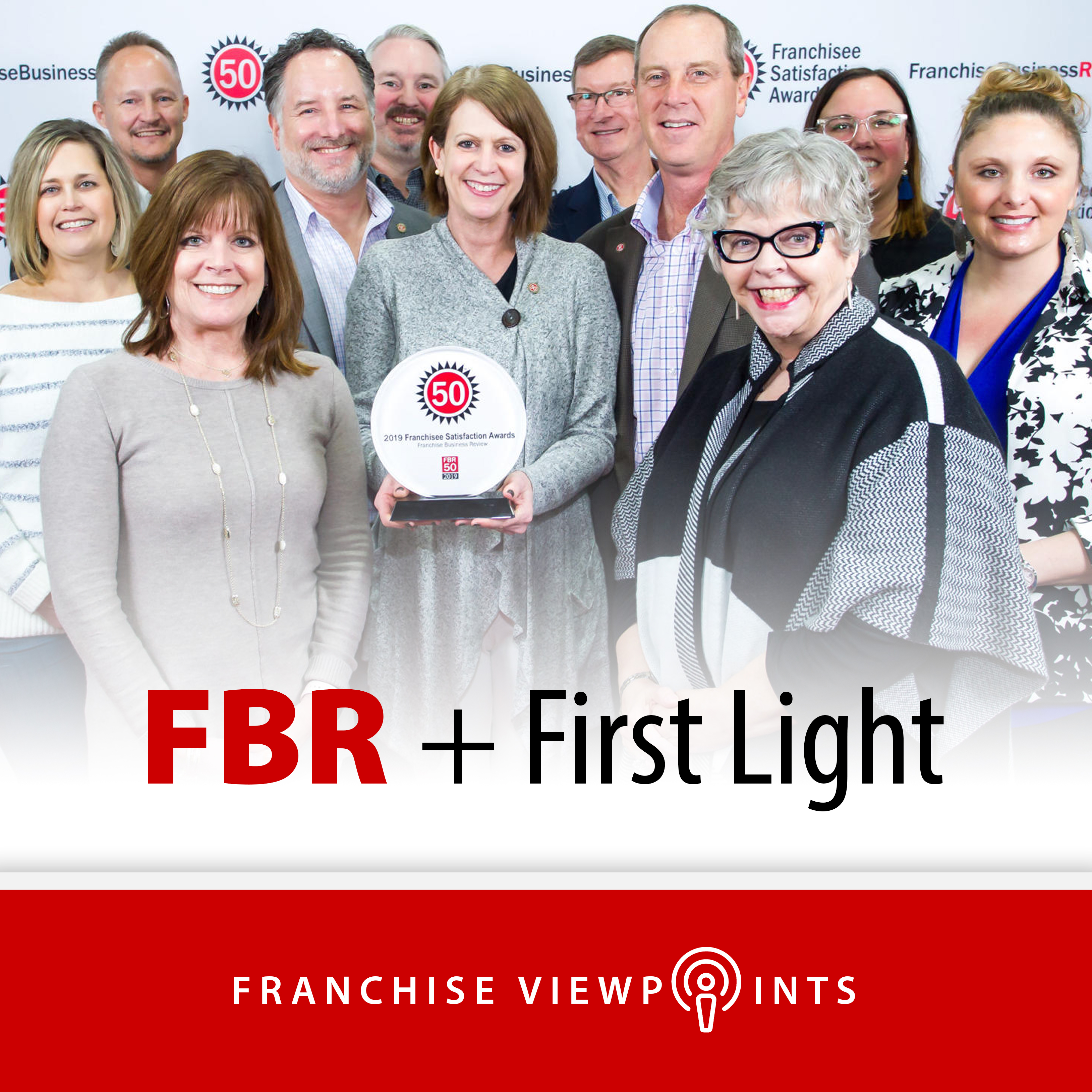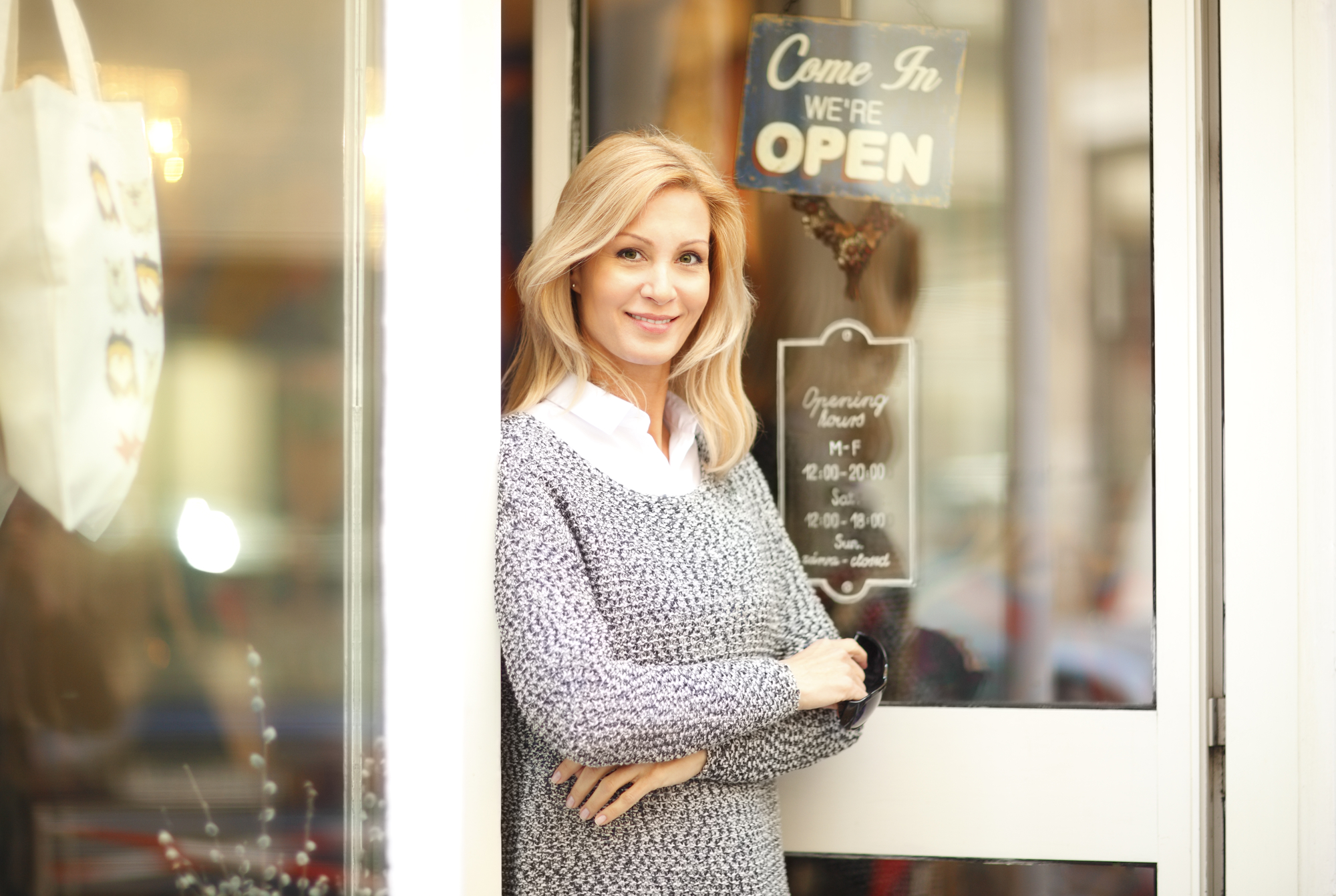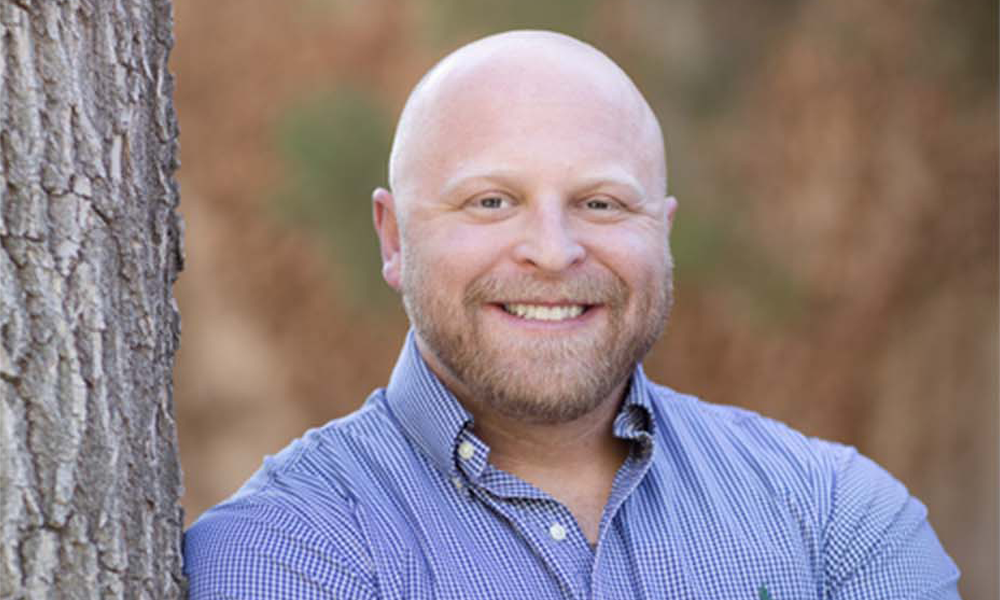
Jamie Davis joins FBR CEO Eric Stites to discuss the “unstoppable wave of demand” in home health care and explains how FirstLight Home Care leverages its superior customer service and outstanding caregiver retention to stand out and thrive in the burgeoning industry.
Listen to the full conversation here or read the transcript below.
—
Eric Stites: Good afternoon. This is Eric Stites with Franchise Business Review, and I have the pleasure today of talking with Jamie Davis who is the executive director of franchise development at FirstLight Home Care. Jamie, welcome.
Jamie Davis: Thanks Eric. Great to be here.
Eric: Thanks for taking a few minutes out of your busy day to chat with us today and I really want to just kind of start and have you share a little bit about First Light Home Care as a brand, and also let’s just talk about the industry. I know a lot of people don’t even think about home care as a franchise opportunity. Give us a little background.
Jamie: Sure. So FirstLight Home Care is a world class system that was started by Jeff Bevis and his son Devin from scratch. They built this concept from scratch using quite a bit of experience and not only in franchising but also in home care. Also out of modeling the company after Ritz-Carlton, it was a world class customer service model Ritz has, Malcolm Baldridge award that was the basis for the sort of service model that FirstLight holds itself to.
I have been with FirstLight for a very short period of time, but once I discovered it, I really was attracted to a number of different things about the company. Most especially is the vision that Jeff Bevis brought to FirstLight and how he used that to build this system from the ground up, as I said.
So world class systems and processes and the team is phenomenal. The more I get into knowing the folks at First Light, not just at the corporate office but out in the field and the franchise owners themselves and the folks that work for them and most especially the caregivers, I’m blown away by the culture. Which is really what drives First Light. It’s the culture of care.
You know, one of the things that’s interesting, I come out of the food industry. That’s where I started in franchising. I know we all talk about turnover in the food business. 120% turnover is not unusual in the restaurant business. And it’s not unusual in home care either, unfortunately. There’s a reason for that. Very similar kind of workforce and so a lot of the time you find home care companies that experience turnover in the 80% range. In fact, I saw an article in Home Health Care News just last week where home care has reached an all time high of 82% turnover. You can imagine if you’ve got a loved one that you’re paying a home care company to care for and you’ve got a different caregiver in there every day that’s not a great situation.
Eric: That’s a scary kind of thing.
Jamie: Right, absolutely. Yeah. So one of the things that I find fascinating about FirstLight is that our turnover is in the 20% range. Which is remarkable. And there’s a reason for it. Actually, there are lots of reasons for it. That’s one of the things that gets me really excited about First Light is the fact that there are so many reasons that the turnover for caregivers is as low as it is, and conversely, the customer satisfaction is as high as it is for First Light. The reason it’s exciting to me is that we’re talking an industry that has very low recognition that it even exists. Last studies that came out were 10% and 11% of the population three years ago and one year ago respectively, even knew home care was an option for them. A lot of people out there that are getting care to senior members of the family that are elderly folks that need help, and they’re taking time off. In fact elder care has replaced child care as the number one reason for being away from work. So really, pretty remarkable when you think about it.
The value of those people that are taking time off of work to care for a loved one is 300 billion dollars annually.
The home care industry itself is just shy of 80 billion. It’s at 79.7 to be exact actually. That 79.7 billion in annual revenue across the industry. Think about that for a second. You know, I was in the pizza industry, that’s where I started. That’s a 45 billion dollar annual revenue kind of an industry. And who doesn’t know about pizza? Right? So with 100% recognition of the category, you’ve got 45 billion dollars over here. With 11% recognition, you got 80 billion dollars in home care. And 300 billion dollars of value or expense that’s being laid out there by family caregivers. I feel like if we can tap into that, there’s really no stopping home care as an industry.
I hear a lot about oh it’s so saturated there’s too many concepts out there. We’re not even at a midpoint yet in terms of capturing what’s really out there. Beyond that, 12,000 people a day, 365, soon enough the over 85 population is going to be the fastest growing portion of our population in 2020 and beyond. Right? It’s just really an unstoppable wave of demand, and I kind of feel excited right now being with a company like First Light where we’re really well positioned from a culture perspective, from a technology perspective, from a processes and standards perspective, and from a franchisee satisfaction perspective frankly. Since we’re talking with FBR here. I think we’re really well positioned to see a lot of great growth. It’s gonna make a big impact in people’s lives.
Eric: Yeah, it’s amazing. The opportunity in the industry is huge. I get asked all the time from candidates what’s hot, what’s the big new thing in franchising. I’m like well, the hot kind of big new thing that’s not really all that new is senior care. It’s just booming. Like you said, and it’s got a long way to go. The population is aging and people are living longer especially within kind of the target audience that this population tends to be wealthier and can afford services and keep people in their homes longer. So it is, it’s a win win win.
Jamie: I was just going to say that dynamic really has caused private equity to take a real hard look and they’re gobbling up concepts left and right. The other thing that I found really attractive about First Light is this is founder owned, and that’s not going to change any time soon. It’s a privately owned company that is in this for the long haul with succession planning for a generation at least. Where we’re gonna be a family owned company and it’s going to be privately owned. So we’re not making any rash decisions on bringing in people just so we can amp the numbers so to speak, and position it for a sale or a flip or whatever the case may be. Not that private equity is a negative thing, because I’ve worked with companies that were held by long term private equity hold folks that are great partners, but this particular industry is so hot that you’ve got the kind of private equity that’s not coming into long hauls. They’re not coming in for a strategic buy, they’re coming in for a flip. That really never bodes well for culture. So that’s the other thing that really comfortable to be at First Light were I am.
Eric: Yeah, that culture piece is huge. Most people talk the talk when it comes to culture. I’ve interviewed Jeff, your CEO, before, a couple of times. I’ve known Jeff for years and served on a couple of IFA boards with him. You don’t get any more genuine an individual than him. It flows down from the top, clearly. I think when you say the industry turnover is 80% and yet you guys are around 20% that speaks volumes of that.
Jamie: Yes, that’s the one thing you can point to. Lot of people talk about, you know, we’re gonna treat your family like our family. We’re gonna love them like you love them. We can actually prove it. That number alone is sort of proof that our culture works. It’s not just a nebulous thing that we talk about as in a plaque on the wall. It lives and breathes every single day in every home that we serve.
Eric: Right, right. So one of the interesting things that people that are listening wouldn’t know are own editorial director from Franchise Business Review a few years ago left us to actually become a franchisee at First Light.
Jamie: He sure did. Yup.
Eric: After working for us for a whole bunch of years and reading up on every franchise there was out there, she decided to jump ship and now she owns a franchise in the Boston area.
Jamie: They’re sort of a model franchise owners too, by the way. They’re awesome.
Eric: Yeah. No, I know they’re having a good time with it. So I guess just along those lines, Jamie, if you could kind of walk us through what is it like to own a franchise in the home care business and what are kind of the key skill sets that you look for in a good franchise owner?
Jamie: Right. Well first of all it’s a simple business but it ain’t easy. If you ask Molly she’ll tell you it’s a hard business. It’s a fairly straight forward model, but it is a 24/7 kind of a thing if you’re doing it right. So we look for people who are driven by a higher calling or higher purpose in their work. Talk a lot about Simon Sinek , and I’m sure you have heard about the golden circle and people don’t buy what you do they buy why you do it and it couldn’t be more true with First Light and home care because if you imagine putting a parent or somebody, a grandparent into a situation where they’re going to need care, you’re going to need to generate trust very quickly. You can only do that if you have a genuine purpose and a real why. If you’re driven by why are you doing this, and most of the people that come to us come to us because they’ve experienced unfortunately poor choices or poor options in their own efforts to get care for their people. We have a large amount of people that come to us for that reason.
So in terms of the skills, in terms of the numbers right, we look for 100,000 in liquidity and 200,000 dollar net worth just in terms of criteria to qualify. That’s just the numbers.
The skill sets, you know, we’re looking for people who can build teams, people that have had managerial experience, who are very organized. You can present well. Then also have a caring soul. They want to treat people around them the way that they want to be treated and therefore keep those people around for a long time. So that’s really it. We don’t really need home care experience, health care experience, any of that. Any franchise, might have been Gordon Tieter or one of the Wendy’s presidents after Dave Thomas, used to talk about a franchise being like a battery operated car. Super cool when it does really great things, but you need batteries and the franchise uses the batteries. So we’ve got a really cool toy here. It’s awesome, and we’re looking for more batteries like Molly and Steve to help us grow this thing the right way.
Eric: Yeah, yeah. I mean it’s, you know, it’s as we said it’s a great industry, can be very lucrative. I guess when you’re kind of vetting candidates to come into the first light brand I know a lot of people are attracted to the home care sector because of the money potential because it can be a very profitable business to run. It’s a fairly low cost as you said. A hundred grand is not nothing but certainly from the investment standpoint in a business it’s fairly low cost or easy to get into. You can make significant dollars in that investment. So how do you, I guess how do you get at that when you’re vetting candidates? Like is this, do you have caring profile that you give them?
Jamie: No, no. So when you come at me or my team members on the phone and you’re not willing to talk turnkey with us, all you want to know about is the P&L, where’s the profitability coming from? How much can I make? That’s the only thing that’s driving you, that’s a pretty big red flag to me and to my team too. So it comes through. People who are driven the right way, who are genuine, we know who you are. And we also know who you aren’t. We’re pretty easy at sniffing that kind of stuff out. So we do say no quite a bit.
Eric: Yeah, yeah, I bet. So there are other, a few other senior care companies out there. I know we talked about culture as a big differentiator when someone’s looking at maybe some of your competitors or looking beyond the culture piece, what do you see as kind of the big differentiators for First Light?
Jamie: Well I think it’s the fact that Jeff and Devin created a platform from scratch having lived through mistakes that others had made in the past and corrected them from the very beginning. So the culture’s a big piece of it, but that’s backed up by technology, by systems and processes, by the right kind of focus from a support perspective and the amount of support that the franchise owners receive from day one is far afield from what others offer. So I think those are the big things. Our technology, we’re out ahead of our competition in a number of ways. I don’t want to sort of give away the farm here, but there’s a number of ways that we’re out in front from a technology perspective that will have a big impact going forward as more and more regulation comes online. When Jeff and Devin got into business I think there were three states maybe that had licensure of any kind for home care. Now’s there 34 I believe states with that. And it’s going to be 100%. There will be 50 states that have licensure regulations.
We’re really well prepared for all of that. We’re thinking way ahead, and beyond just home care as well. We have a vision for First Light care, or First Light as a brand, many many subsequent offerings that will be offered to the franchise owners at no additional cost in their territory as we continue to develop those. There’s a number of them. Again, can’t give up the farm here, but there’s quite a number of things that we’ve got coming down the pipe that are exciting for our franchise owners and for First Light as a brand.
Eric: Sounds awesome. So you know, as I said at the onset, I’ve known you for a number of years. I know you’ve been with a number of different leading brands out there, starting with Donato’s. You’ve been around the franchise industry a long time. What advice do you have for somebody that’s thinking about getting into franchising as a franchisee, a franchise candidate? What would you tell them as far as what to look out for, what tips and advice do you have I guess for those people?
Jamie: Yeah. The first thing I always talk about is the franchise disclosure document itself. Read it. I always start with, the order that I always look at is item three and four which is litigation and bankruptcy, then item seven, initial investment. Then item 20 which is outreach so you can see how the company is growing. Then item 19, see if they have one. If they do, what’s it look like. The rest of it’s important, but that’s kind of the order that I look at. Then use that information to go out and talk to as many franchisees as you possibly can. Do your homework. Check out the industry. Check out the competition. Secret shop everybody in the area that you’re looking at. Then finally, take a real strong look at the ownership of the company. Who owns the company? Where are they taking this? How many, who owns the company now, who owned it before that? Who owned it before that? Who owned it before that? Right. See how many times the company’s gone through ownership changes. Because that’s a real indicator I think of stability and of continuity and consistency going forward.
Jamie: So those are the big pieces of the place that they could have.
Eric: Yeah, I think that’s a great comment because in the research that we’ve done over the years when looking at franchisee satisfaction, I mean, there’s always a big drop-off in satisfaction when there’s an ownership change. More often than not that satisfaction never recovers I mean because they had that core relationship with the original owners or the management team that they knew. I think that’s a great point. People don’t realize that well, yeah, an empire can be sold to someone else and a management team can come in. Not that that’s always a bad thing, like you said, but understanding that structure and who those owners are and what their goals are is critical.
I appreciate that feedback. I don’t want to take up your whole day, so I will let you go. I know people can find lots of information about First Light on FranchiseBusinessReview.com. They can also go to your website or contact you directly. You want to share your contact information?
Jamie: Sure, yeah. Our website is firstlightfranchise.com. My direct dial, anybody wants to call me, is (614) 312-7399, just call me or shoot me a text. Happy to shoot the breeze with anybody, and would recommend also while I got the opportunity that any of your listeners that are franchise owners who aren’t using your services need to be. It’s incredibly valuable. We actually just finished our survey and I believe we had the highest level of participation ever at First Light this year because what ends up happening is that our franchisees see that we listen because we make changes based on that and so as participation goes up so goes up the communication and engagement and all that. So if you’re not using FBR, you should probably do that as soon as possible. So how about that?
Eric: Well I appreciate that. I appreciate that. Well Jamie, you enjoy the rest of your day and I wish you the best of luck with FirstLight.
Jamie: Thank you sir. Really enjoyed it. Talk to you soon.
That’s it for this edition of FBR viewpoints. For more information on today’s top franchise opportunities please visit franchisebusinessreview.com.




